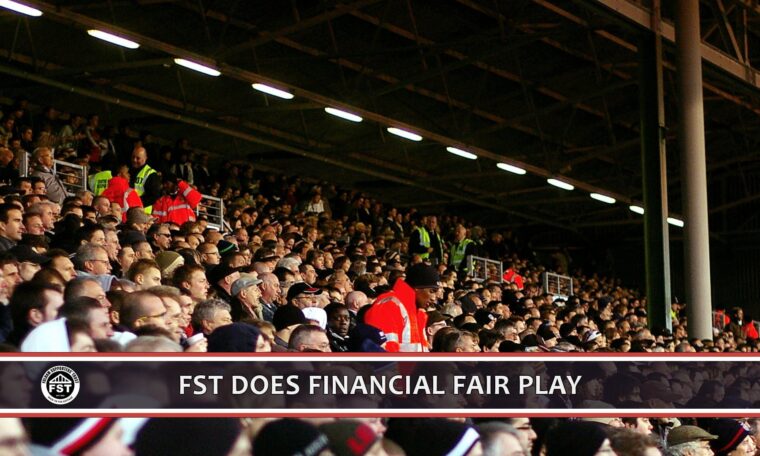FST does Financial Fair Play

Financial Fair Play (FFP). Three little words that have a big impact on the way our football club operates. But, how much do you really know about the regulations designed to prevent clubs like Fulham spending more than they earn in the pursuit of success?
Fulham fell foul of the regulations in December 2015 after reporting losses of £27m for the previous season, which were £21m over the limit at the time. The breach resulted in a transfer embargo for the remainder of the 2015-16 season.
With the January transfer window starting on the 1st January and ending on the 31st January, the Fulham Supporters’ Trust has teamed to with an expert from the Deloitte Sports Business Group to create a suite of short videos to help you better understand FFP and how it could influence Fulham’s approach.
Hosted by the Trust’s Farrell Monk, and featuring football finance expert Calum Ross of Deloitte, the videos discuss why FFP exists, exemptions to the regulations and the impact of FFP on clubs whose finances peak and trough due to promotion or regulation.
What is the purpose of FFP, how is it evaluated and what are the challenges?
Calum explains that it was introduced to “protect the long-term future of football clubs.” It does not necessarily come purely down to a whether a club is profitable or not as the regulations allows for so-called ‘good costs’. Community expenditure, youth development and women’s football investment can be excluded to help a club arrive at a break-even result. Just because a player is bought for £10m, it does not translate to £10m of cost onto that year’s financial result.”
Player transfers
Buying and selling footballers in the 21st century is getting more and more complex. A way that a player is acquired can be recognised in different ways and therefore has a knock-on effect to FFP and Fulham’s profitability.
Loans v permanent transfers
As we have seen in recent years, Fulham have heavily used the loan market. The 2020-21 season saw 7 loan signings. Their effectiveness on results on the pitch can be debated at great length, however the financial flexibility of loans in the current climate and in respect of Financial Fair Play can prove valuable as Calum explains.
We may not be in the business of training other club’s players, but the practice must be traded off against financial sustainability. Therefore, it is a prudent method to adhere to the standards and avoid penalties. And as we all know, Fulham can be quite uncertain when it comes to penalties!
The impact of Covid
There has been a significant and well documented impact of the Covid pandemic on football finances. Although Craven Cottage’s capacity was reduced by around a quarter due to the closure of the Riverside Stand and Fulham had been relegated into the Championship, gate receipts fell by 50% from June 2019 to June 2020. From March 2020, the impact of behind closed doors football was clear. And with playing and non-playing staff still needing paid, the regulations required adjusting.
FFP and the ownership
Since Shahid Khan took ownership of the club in 2013, the average financial loss per year is almost £30million. All of which has been subsidised by the American billionaire, bringing his cumulative operating investment to £205m*. FFP tries to restrict the investment of this size on a continual basis to level the playing field across the football pyramid. But does this mean an owner cannot invest in their football club?
*The total cash spent on the club by the owner is far greater as this number excludes the original purchase of the club and other capital investments such as the Riverside Stand project.
You can find the full set of FST does FFP videos in this YouTube playlist.
